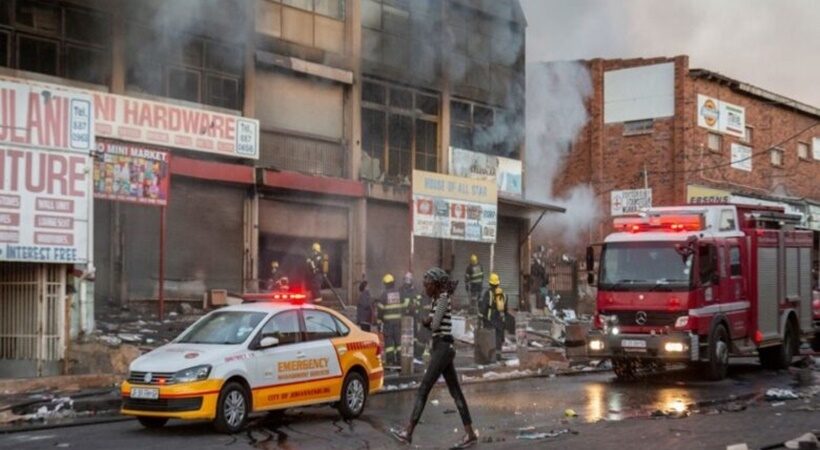On 29 June, former President Jacob Zuma was sentenced to 15 months in prison for contempt of court. He was actually on trial for corruption charges in relation to the South African Arms Deal worth $2.5 billion. He was sentenced for being repeatedly absent during the court trials. Zuma was once an inspiring freedom fighter, who fought for South African liberation from British Apartheid alongside Nelson Mandela.
Since Zuma was taken into custody, his supporters and party (African National Congress) loyalists have perpetrated riots, arson, looting, and unbridled violence. About 337 people have died so far, and over 3,400 have been arrested. The unrest initially began at Zuma’s hometown KwaZulu-Natal on the 9th of July but spread to Gauteng province, where the largest city Johannesburg is located, by the 11th of July.
The disorder has led to economic damages worth $1.37 billion in KwaZulu-Natal alone as 300 shopping malls and centres, 11 warehouses, 8 factories, 90 pharmacies, and 1400 ATMs were vandalized. The damages in Gauteng are yet to be estimated. ATM machines are empty as people wait in line to withdraw money, medical shortages have affected 50% of patients with chronic illnesses, and food shortages are expected as the riots have hit farming areas.

Zuma’s arrest triggered the riots in South Africa. Youth unemployment over here is one of the highest in the world, peaking at 75%, and more than half of the population is living in poverty. The government’s response to the COVID-19 crisis was also largely disapproved by South Africans. His arrest was an excuse to display frustration against the incompetent government as millions in South Africa suffer from the economic ramifications of the COVID-19 pandemic. Zuma’s trial is all set to resume on August 10th or 13th.
Phoenix population, one of the towns in KwaZulu-Natal mainly inhabited by Indians, have armed themselves to protect their businesses, fueling tensions between South African Indians and Black South Africans. There have been multiple reported cases of racial attacks as well. South Africans of Indian Origin constitute a minute population (2.5%) in the country
Indian Minister for External Affairs, S. Jaishankar has brought the matter of safety of Indians to Dr. Naledi Pandor, South Africa’s Foreign Minister, and the former has been assured of safety and security of Indians and has promised on restoring law and order in the country.
Twenty people have died in the town so far due to the riots. Meanwhile, Authorities have said that race was not the primary reason behind the unrest in the town.



















